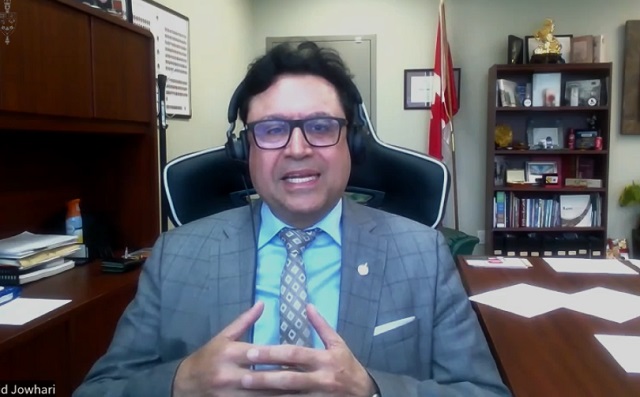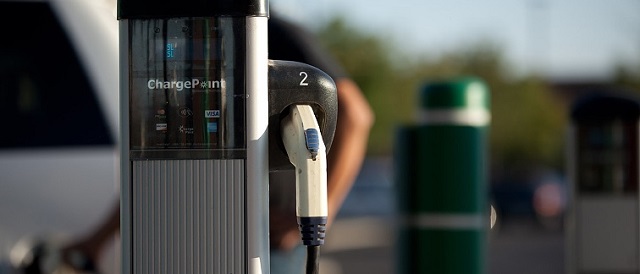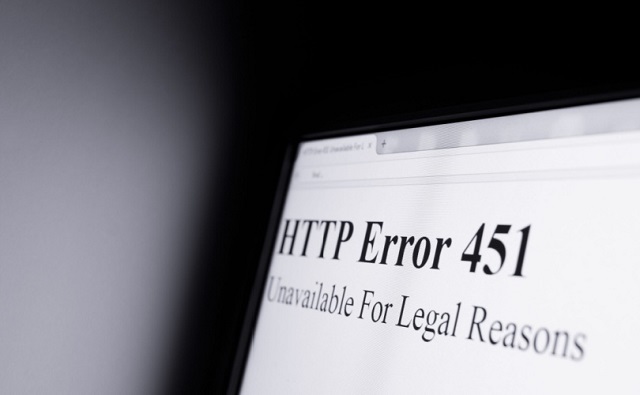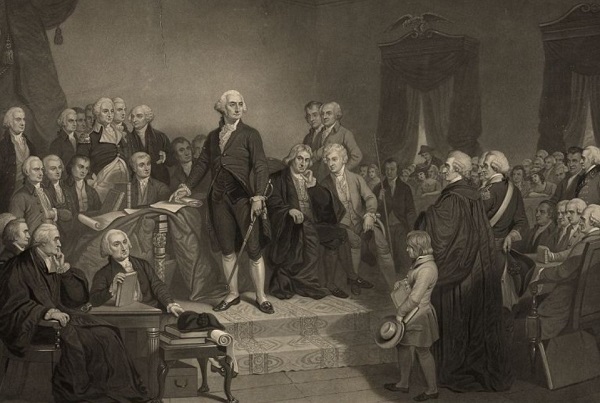Media
CBC tries to hide senior executive bonuses

From the Canadian Taxpayers Federation
Author: Franco Terrazzano
The Canadian Taxpayers Federation filed a complaint with the Office of the Information Commissioner after the CBC refused to disclose 2023 bonuses for its eight senior executives until days after its President Catherine Tait is scheduled to appear at a parliamentary committee.
“This reeks of the CBC trying to conceal its senior executive bonuses so Tait doesn’t have to talk about it when she testifies at a parliamentary committee,” said Franco Terrazzano, CTF Federal Director. “The CBC is required to follow access to information laws and this nonsense delay is a blatant breach of the law.
“If Tait and her executives think they deserve their bonuses, they should be open and honest about it with taxpayers.”
The CBC proactively discloses certain information related to executive compensation in its annual reports. However, because the annual report lumps together salary and other benefits, Canadians don’t know how much the CBC’s eight senior executives take in bonuses.
Other Crown corporations have provided the CTF with access-to-information records detailing senior executive bonuses. For example, the Canada Mortgage and Housing Corporation paid out $831,000 in bonuses to its 10 senior executives in 2023. The Bank of Canada paid out $3.5 million in bonuses to its executives in 2022.
On March 11, 2024, the CTF filed an access-to-information request seeking details on the compensation paid out to CBC’s eight senior executives in 2023, including bonuses.
On April 9, 2024, the CBC issued a 30-day extension notice.
The new deadline for the CBC to release details on senior executive bonuses is May 10, 2024, just days after Tait is scheduled to appear at committee on May 7, 2024.
In response to a previous access-to-information request, the CBC released to the CTF records showing it paid out $15 million in bonuses to 1,143 non-union staff in 2023. The CBC did not issue an extension notice on that request.
“Tait is wrong to hide the cost of bonuses for CBC’s eight senior executives from the Canadians who pay their cheques,” said Terrazzano. “Tait must do the right thing and confirm to the parliamentary committee that she will cancel CBC bonuses.”
The CTF filed the complaint with the Office of the Information Commissioner on May 3, 2024, regarding the CBC’s delay in releasing documents regarding senior executive bonuses.
“The CBC is legally obligated to release the bonus documents days after the parliamentary committee hearing so obviously Tait has the details readily at hand,” said Terrazzano. “If MPs ask for those details, she needs to answer.
“And just to be clear, the CTF is fine with the CBC releasing this information at committee or anywhere else.”
Censorship Industrial Complex
Elon Musk skewers Trudeau gov’t Online Harms bill as ‘insane’ for targeting speech retroactively

From LifeSiteNews
It literally spits in the face of all Western legal traditions, especially the one about only being punished if you infringed on a law that was valid at the time of committing a crime
Billionaire tech mogul Elon Musk remarked that it is “insane” that the Trudeau government’s proposed “Online Harms” bill would target internet speech retroactively if it becomes law.
“This sounds insane if accurate!” wrote Musk on Tuesday, in reply to an X (formerly Twitter) user named Camus who detailed that Prime Minister Justin Trudeau’s government’s Bill C-63, the Online Harms Act, could see Canadians fined or even jailed for things posted on the internet prior to the bill becoming law.
Camus noted how Bill C-63 could give police “the power to retroactively search the Internet for ‘hate speech’ violations and arrest offenders, even if the offence occurred before the law existed.”
A brief time later, X’s “CommunityNotes” program – a system in which users collectively “fact-check” information shared on the site –confirmed what Camus had written was accurate, quoting a section of the bill’s text.
“Part 3 of Bill C-63, which is still at first reading stage and is not yet law, adds to the Canadian Human Rights Act: ‘a person communicates or causes to be communicated hate speech so long as the hate speech remains public and the person can remove or block access to it,’” CommunityNotes wrote.
Camus observed about Bill C-63 that the “Trudeau regime has introduced an Orwellian new law.”
“This new bill is aimed at safeguarding the masses from so-called ‘hate speech,’” he wrote. “The real shocker in this bill is the alarming retroactive aspect. Essentially, whatever you’ve said in the past can now be weaponized against you by today’s draconian standards.”
Camus observed how historian Dr. Muriel Blaive has weighed in on “this draconian law,” labeling it outright “mad.”
“She points out how it literally spits in the face of all Western legal traditions, especially the one about only being punished if you infringed on a law that was valid at the time of committing a crime,” wrote Camus.
Bill C-63 was introduced by Liberal Minster Attorney General Arif Virani on February 26 and was immediately blasted by constitutional experts as troublesome.
The bill, if passed, will modify existing laws, amend the Criminal Code as well as the Canadian Human Rights Act, in what the Liberals claim will target certain cases of internet content removal, notably those involving child sexual abuse and pornography.
However, the bill also seeks to police “hate” speech online with broad definitions, severe penalties, and dubious tactics.
Trudeau’s new bill a ‘terrible attack’ on speech, Musk warns
On Tuesday, well-known Canadian psychologist Jordan Peterson replied to Musk by saying about Bill C-63, “It’s much much worse than you have been informed: plans to shackle Canadians electronically if accusers fear a ‘hate crime’ might (might) be committed.”
“It’s the most Orwellian piece of legislation ever promoted in the West.”
Musk replied to Peterson by saying Bill C-63 is “[a] terrible attack on the rights of Canadians to speak freely!”
Other notable X users, such as Canadian lawyer David Freiheit, who is known online as Viva Frei, confirmed Musk’s concern that Bill C-63 could go after X users from posts/tweets made long ago.
“It’s pretty close to accurate, Elon. If someone has the ability to delete a ‘hate speech’ tweet / post and does not, and someone else retweets that tweet, it would qualify as ‘publication’ under the law and be sanctionable,” he wrote.
Details of the new legislation to regulate the internet show the bill could lead to more people jailed for life for “hate crimes” or fined $50,000 and jailed for posts that the government defines as “hate speech” based on gender, race, or other categories.
The bill also calls for the creation of a digital safety commission, a digital safety ombudsperson, and a digital safety office.
The Justice Centre for Constitutional Freedoms (JCCF) has said Bill C-63 is “the most serious threat to free expression in Canada in generations. This terrible federal legislation, Bill C -63, would empower the Canadian Human Rights Commission to prosecute Canadians over non-criminal hate speech.”
In a recent podcast, Peterson and Queen’s University law professor Bruce Pardy warned of the “totalitarian” impact Trudeau’s new Online Harms bill will have on Canada.
Peterson observed that the Trudeau government is effectively “establishing an entirely new bureaucracy” with an “unspecified range of power with non-specific purview that purports to protect children from online exploitation” but has the possibility of turning itself into an internet “policing state.”
Censorship Industrial Complex
Internet censorship laws lead a majority of Canadians to believe free speech is threatened: poll

From LifeSiteNews
In light of the barrage of new internet censorship laws being passed or brought forth by the federal government of Prime Minister Justin Trudeau, a new survey revealed that the majority of Canadians feel their freedom of speech is under attack.
According to results from a Leger survey conducted April 26-28 that sampled responses from 1,610 Canadians, 57 percent think their freedom of speech is being threatened, with 36 percent not believing this to be true.
Not surprisingly, those with conservative voting intentions, about 76 percent, were the most likely to feel that their free speech is under attack, with 70 percent of the same group as well as those over 55, feeling that Canada is not as free as before.
The survey results also show that 62 percent of Canadians think it is “tougher to voice their opinion in their country, while 27% think it is easier.”
“Conservative voters (70%) and Canadians aged 55 or older (70%) are more likely to think that it is tougher now to express their opinion,” Leger noted in its survey.
Not surprisingly, Liberal voters were the most supportive of placing limits on free speech, with 64 percent agreeing with the following: “There should be limits on freedom of speech to ensure that things such as hate speech, speeches preaching a form of intolerance, or speeches against democracy be prevented from reaching the public.”
The survey also revealed that about one of four conservative voters believe that their views are not socially acceptable.
Sixty percent of conservative voters said that free speech should never be limited in any manner and that one should be able to express their opinions publicly without issue.
Regarding their reasons for free speech being under attack, 11 percent blamed politicians causing more hate, with eight percent saying “right-wing” extremists were to blame, with seven percent blaming woke-minded thinking as the issue. Twenty-nine percent of Canadians felt that a growing lack of respect is to blame, and 13 percent thought it is due to “a degradation of the moral fibre in the country.”
A bit concerningly, only six of 10 Canadians have confidence that the next federal election, scheduled for 2025, will be “free and fair,” with 29 percent saying outright they are “not confident.”
When it comes to internet censorship laws, the most recent one introduced in the House of Commons is a federal government bill that could lead to large fines or jail time for vaguely defined online “hate speech” infractions under Liberal Minster Attorney General Arif Virani’s Bill C-63, or Online Harms Act.
LifeSiteNews recently reported how well-known Canadian psychologist Jordan Peterson and Queen’s University law professor Bruce Pardy blasted Trudeau and his government over Bill C-63.
Peterson noted that in his view, Bill C-63 is “designed … to produce a more general regime for online policing.”
“To me, that’s what it looks like,” he said.
Two other Trudeau bills dealing with freedom on the internet have become law, the first being Bill C-11 or the Online Streaming Act that mandates Canada’s broadcast regulator, the Canadian Radio-television and Telecommunications Commission (CRTC), oversee regulating online content on platforms such as YouTube and Netflix to ensure that such platforms are promoting content in accordance with a variety of its guidelines.
Trudeau’s other internet censorship law, the Online News Act, was passed by the Senate in June 2023.
The law mandates that Big Tech companies pay to publish Canadian content on their platforms. As a result, Meta, the parent company of Facebook and Instagram, blocked all access to news content in Canada. Google has promised to do the same rather than pay the fees laid out in the new legislation.
Critics of recent laws such as tech mogul Elon Musk have said it shows “Trudeau is trying to crush free speech in Canada.”
-

 Addictions1 day ago
Addictions1 day agoLiberals shut down motion to disclose pharma payments for Trudeau’s ‘safe supply’ drug program
-

 espionage24 hours ago
espionage24 hours agoThe Scientists Who Came in From the Cold: Canada’s National Microbiology Laboratory Scandal, Part I
-

 Energy21 hours ago
Energy21 hours agoTech giants’ self-made AI energy crisis
-

 Energy2 days ago
Energy2 days agoNew Report Reveals Just How Energy Rich America Really Is
-

 Automotive2 days ago
Automotive2 days agoBiden’s Climate Agenda Is Running Headfirst Into A Wall Of His Own Making
-

 Economy2 days ago
Economy2 days agoFeds spend $3 million to fly 182 politicians and bureaucrats to climate conference
-

 National22 hours ago
National22 hours agoTrudeau’s internet censorship Bill C-11 will not be implemented until late 2025
-

 Frontier Centre for Public Policy18 hours ago
Frontier Centre for Public Policy18 hours agoThe PM as Leaf’s coach








